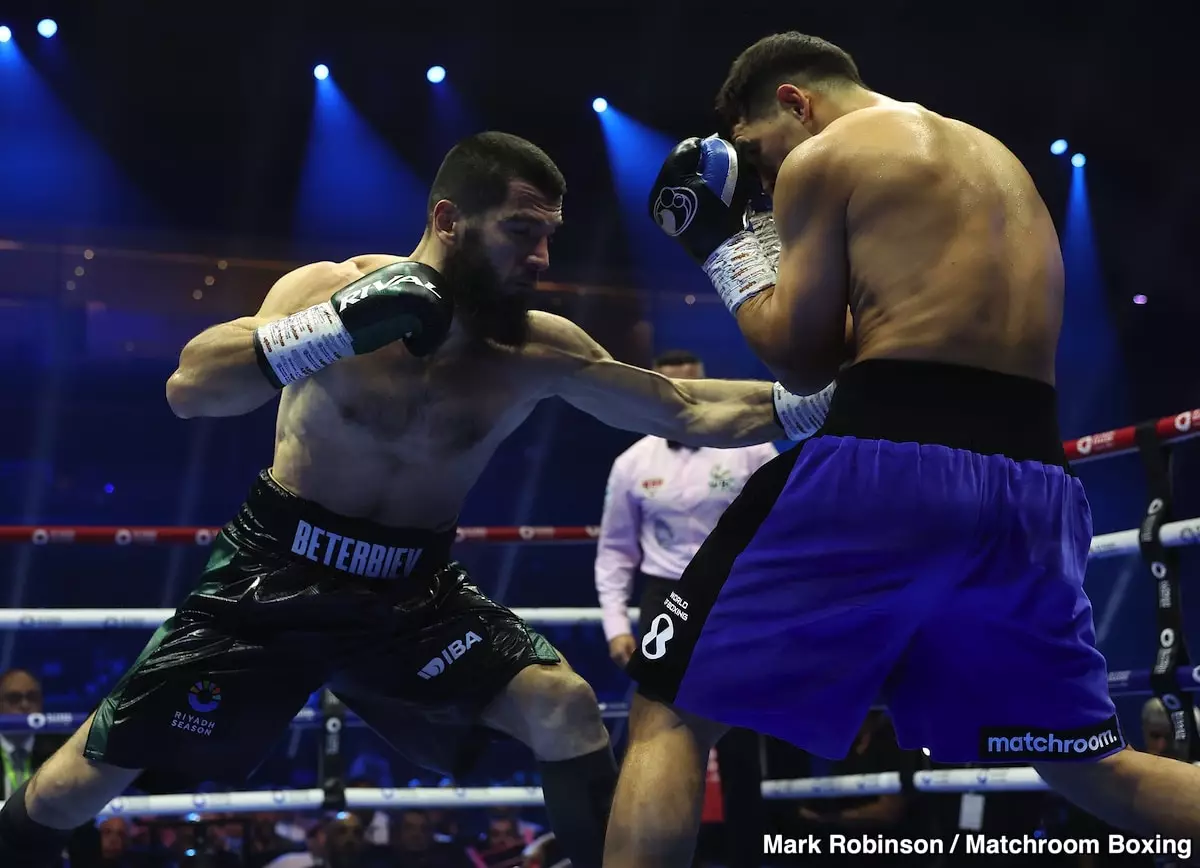Boxing is a sport defined not only by the physical prowess of its competitors but also by the strategic maneuverings behind the scenes. As fighters seek to carve their names into the annals of boxing history, the tactics they employ can often lead to controversial discussions among fans and analysts alike. A prime example of this is the current chatter surrounding WBC interim light heavyweight champion David Benavidez and the undisputed champion Artur Beterbiev.
The Context: Age vs. Experience in Boxing
Artur Beterbiev sits atop the light heavyweight division, boasting an impressive record of 21 wins, all by knockout. However, as he approaches his 40th birthday on January 21st, conversations about his longevity in the sport and the viability of his title reign grow prominent. Boxing has a storied history of competitors waiting for their opponents to age out, diminishing their capabilities so that victory becomes more attainable. This method is often seen as both a tactical retreat and a commitment to ensuring the best chance of triumph, even if it comes at the expense of bravado.
Former fighter Sergio Mora has recently chimed in on this discussion, suggesting that Benavidez ought to adopt a waiting strategy, letting age take its toll on Beterbiev. Mora’s argument hinges upon the idea that the sport is rife with instances where younger fighters have capitalized on the age factor, waiting for an opportune moment when their opponent’s capabilities may have waned. In essence, Mora proposes that Benavidez could effectively “age out” Beterbiev and enhance his prospects of victory in the ring.
Questionable Ethics: Waiting Game or Smart Strategy?
While the analysis may hold merit from a tactical standpoint, it brings up significant ethical dilemmas within the sport. Eager to win titles and achieve legacy, fighters like Benavidez face a precarious choice: pursue an immediate showdown with an aging champion or bide their time. Critics might argue that waiting for an opponent to become less capable can dilute the integrity of competition. After all, boxing is celebrated for its spirit of confrontation, resilience, and the ability of fighters to face each other at their peak.
The notion that champions should be picked off based on their trajectory rather than facing them when they are in their prime raises eyebrows. It can appear as a cowardly maneuver rather than the bold theater one would expect from a champion. However, as Mora highlights, such strategies have historical precedence; every great champion has, at some point, benefited from timing their challenges with a keen sense of marketability and risk assessment.
For Benavidez to realize his aspirations of becoming the undisputed light heavyweight champion, he must first overcome David Morrell. Scheduled for February 1st, this match will serve as a critical stepping stone. Victory against Morrell could position Benavidez as a legitimate contender for either a rematch or a fresh challenge against Beterbiev, ideally synchronizing with the aftermath of the anticipated showdown between Beterbiev and Dmitry Bivol on February 22nd.
This timeframe will be crucial for Benavidez, as Mora’s assertions point to the unpredictability of boxing. The landscape can shift dramatically based on a single fight. If Beterbiev can fend off Bivol, the narrative may soon center on Benavidez’s ability to conquer the fierce determination and established prowess of a champion who, despite advancing age, remains an imposing figure in the ring.
Beterbiev’s style—a potent blend of aggression and precision—proceeds as a formidable obstacle for Benavidez. Mora rightly points out his reputation as “the most dangerous fighter in boxing,” underlining that age does not equate to weakness; rather, it often adds layers to a fighter’s strategy and experience. If Benavidez fails to prepare for the grueling fight ahead, he may find that the psychological warfare alongside physical capabilities can be a daunting combination to overcome.
The debate surrounding the tactic of aging out opponents illustrates a dichotomy within boxing—a dance between strategy and sportsmanship. As Benavidez approaches pivotal matches in the coming months, he must navigate not only his opponents but the morals entailed in the complex psychology of battle. Only time will tell whether he is willing to seize the moment with bravery or retreat into the shadows of calculated risk.


Leave a Reply